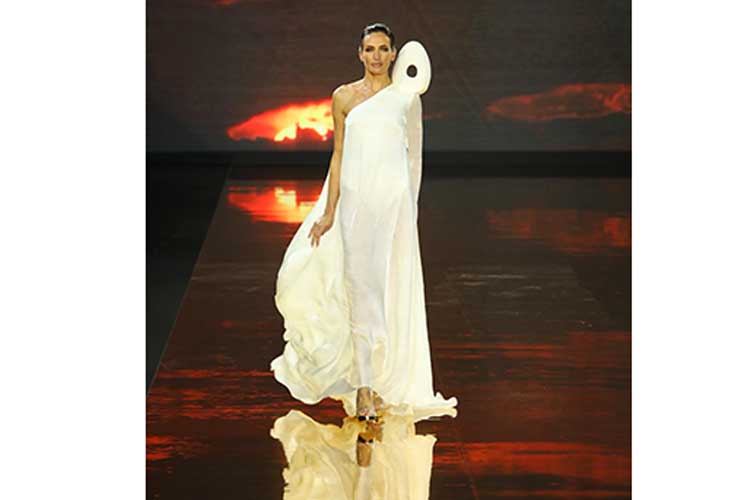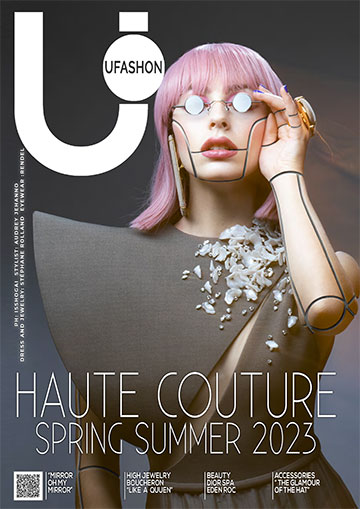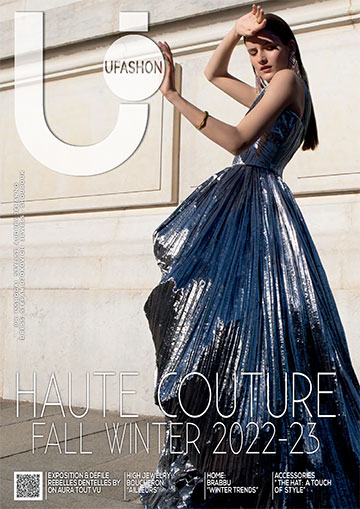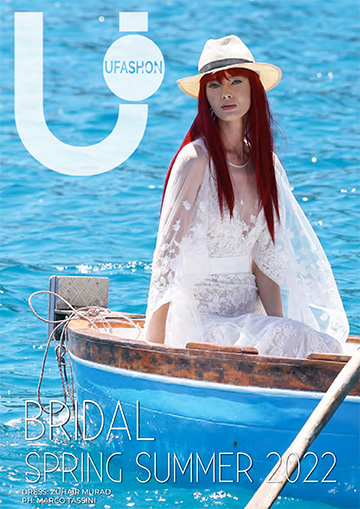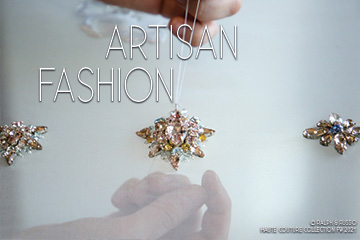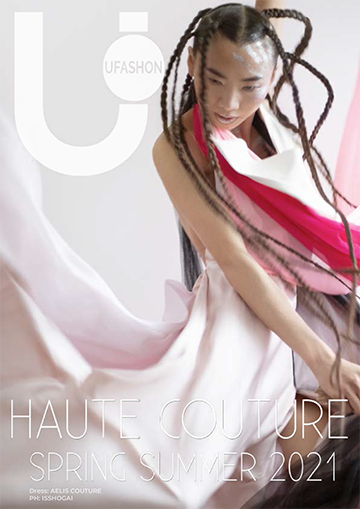A few musical notes from Antonio Carlos Jobìm and Maria Bethania’s voice on asunrise off the bay of Rio.Homage to Orfeu Negro, Marcel Camus’s masterpiece, transposition of Orpheus andEurydice’s myth in a fantasized Brazil with a tangible realism.
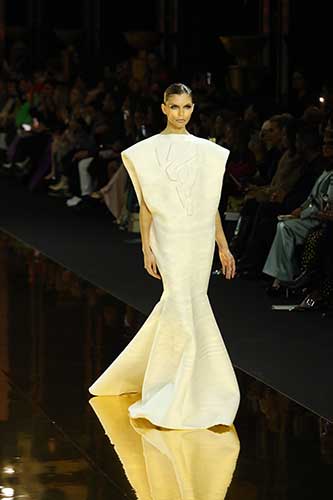 |
Act I
From Oscar Niemeyer, the couturier takes the generous roundness and strength ofhis architecture.From Rio de Janeiro, the Bossa Nova’s sensuality. A half poncho in a white iridescent voile is adorned with a shoulder sculpture, like amarble sculpture on its stele.Column like dresses in white gazar have reminiscences from the Alborada de Brasiliapalace and the Sambadrome dresses, all leg revealing, make heads turn.A few sets, Brazilian stones embellish the body in bunches to break the minimalism ofthe dresses.
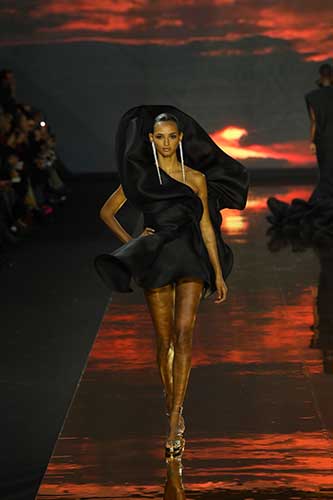 |
Act II
Amazonian immersion. Between rituals and art. Totem dresses in jersey or coffee brown crepe are embroidered with carved symbolsor cutout in mirrors, catching the light. A harem-pants jumpsuit in bark brown meetsa gigantic poncho in emerald green charmeuse embroidered with malachite.Gigantic cuffs and rings of ebony, long stems of earrings, the woman is deified.
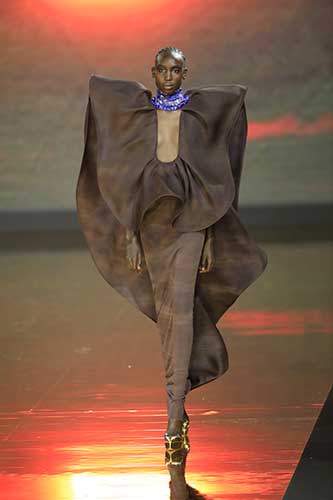 |
Act III
The sun is rising.Conquistadors’ gold is bursting in light.Caped-jumpsuit in golden Brocard, long chasuble dress in metallic knit embroideredwith crystal, gigantic Baianas dresses in lamé gazar, a fur jacket made of metal and aicon dress in platinium crepe embroidered with amethysts…Precious and spiritual women dressed from the Bahia churches’ baroque.
Through this voyage, from Bossa Nova to the prayers, from minimalism toabundance, Stéphane Rolland collects the extremes to find a new balance. A new light.

